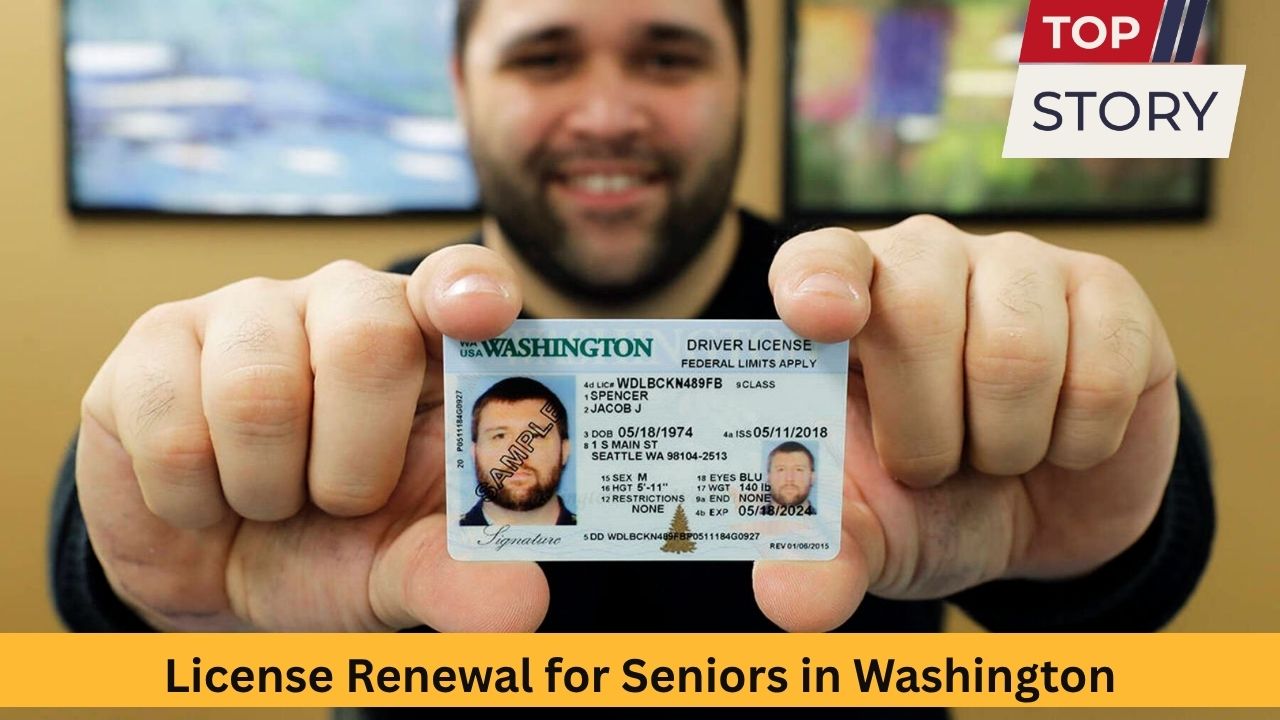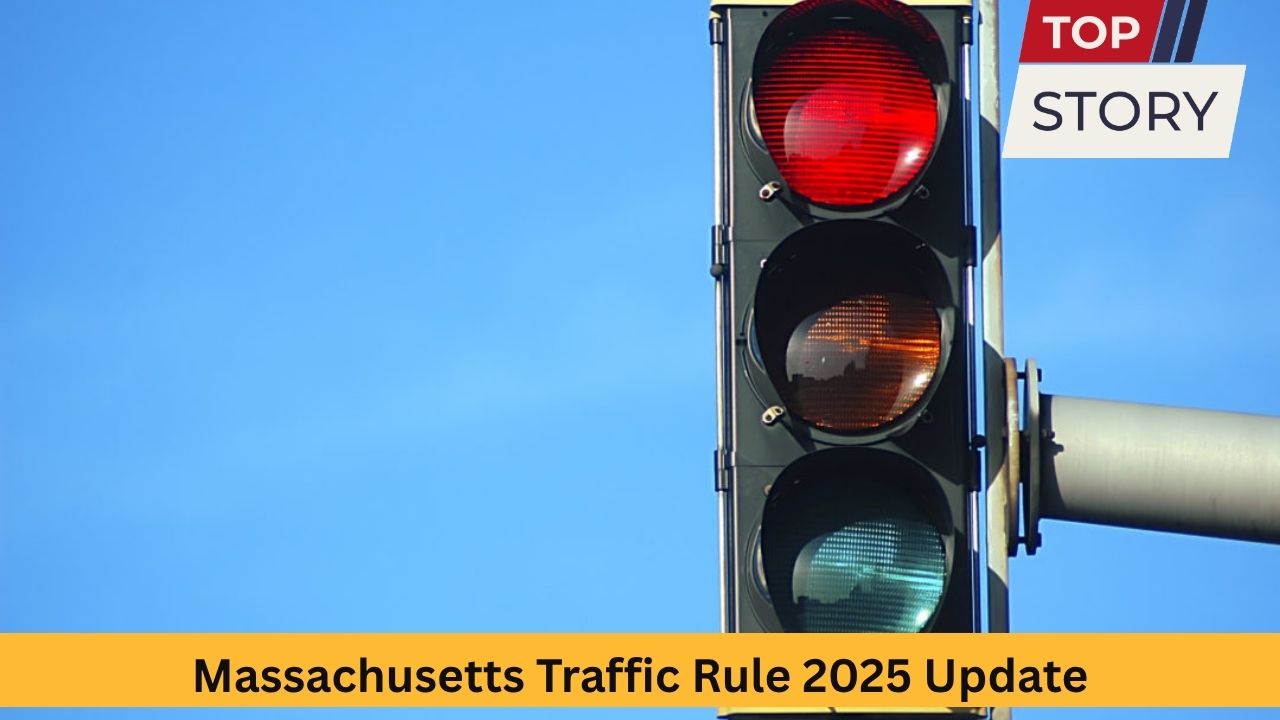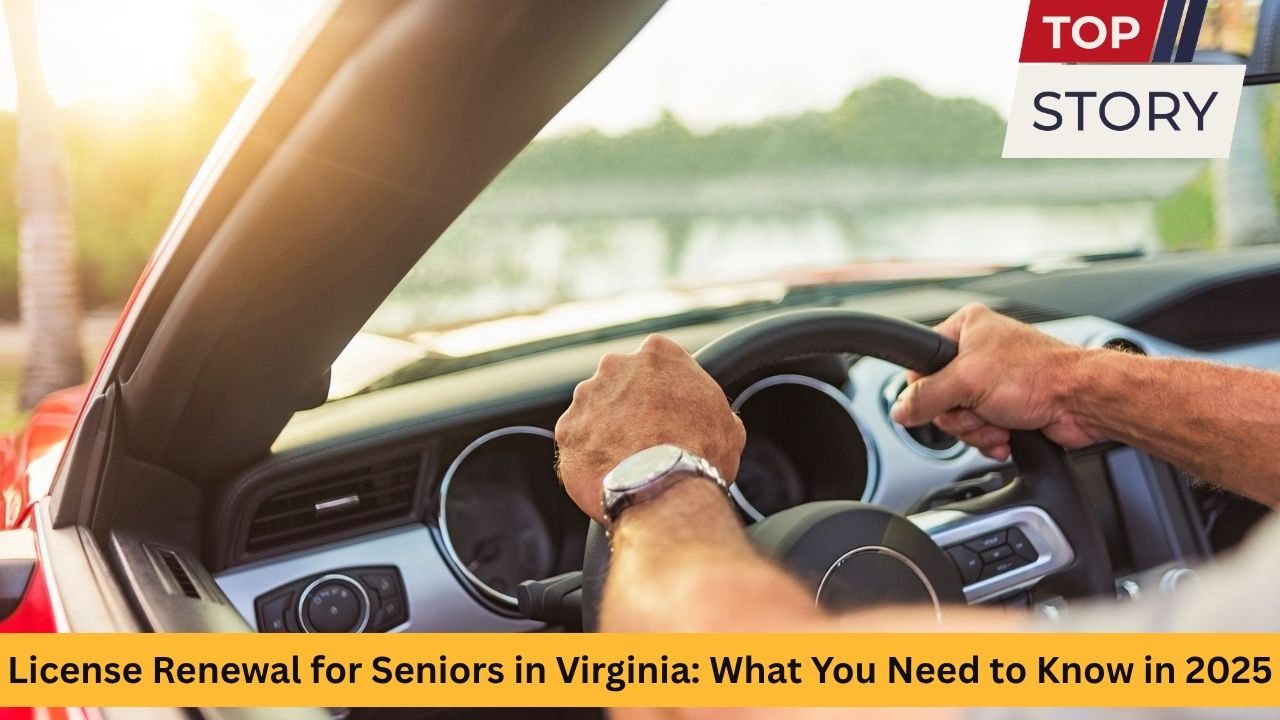Aging brings with it a wealth of experience, wisdom, and for many Washington seniors, a continued desire to remain active and independent on the road. As the senior population in Washington is growing and living longer than ever, understanding the ins and outs of driver’s license renewal is crucial for older adults and their families. Whether you live in vibrant Seattle, the picturesque retirement haven of Sequim, or anywhere from Spokane to Vancouver, staying compliant and safe as a senior driver requires awareness of evolving state regulations in 2025.
This comprehensive guide details the renewal process for Washington’s senior drivers, provides statistics about aging motorists, highlights city-specific considerations, and delivers essential resources to empower continued freedom behind the wheel.
The Changing Landscape for Senior Drivers in Washington
Senior Population Growth
Washington has seen a significant increase in its senior demographic over the past decade. More than 1.1 million licensed drivers in the state are age 65 or older. Towns like Sequim top the list for senior-friendly populations, with roughly 37% of residents being older adults. Port Townsend, a charming destination on the Olympic Peninsula, has an even higher proportion, with nearly 40% of residents over the age of 65.
Several other cities such as Bellingham, Olympia, and Spokane Valley are also witnessing a steady rise in senior populations. These cities offer a blend of accessible healthcare, community support, and recreational activities, making them attractive for retirees.
Senior Drivers on the Road
Nationally, seniors represent over 22% of all U.S. drivers, with Washington closely mirroring this trend. Contrary to common myths, older adults—especially those in their late 70s and eighties—tend to drive more cautiously and have lower crash rates compared to younger demographics. However, age can introduce physical or cognitive changes that warrant periodic evaluations to ensure continued road safety.
Washington State License Renewal Rules for Seniors in 2025
Renewal Cycles and Methods
Washington State offers license renewals on a cycle of either six or eight years, with drivers choosing their preferred length. However, for those age 70 and older, the process is distinct:
-
Seniors aged 70 and above are required to renew their licenses in person at a Department of Licensing (DOL) office, regardless of previous online renewals.
-
In-person renewals include mandatory vision screenings to ensure that drivers continue to meet Washington’s safety standards.
-
Seniors under 70 may have the option to renew online, by mail (with eligibility notices), or by phone if certain criteria are met.
Important Renewal Details
-
You may renew your license up to one year before it expires.
-
If your license has expired for less than 60 days, you can still renew without a late fee; after that, a small additional fee applies.
-
Licenses that have been expired for more than eight years cannot be renewed, and individuals must reapply as new drivers.
-
A new photo and proof of updated address may be required during each in-person renewal.
Fees and Documentation
The cost for renewal is $55 for a six-year license and $73 for an eight-year license for seniors. While fees are standardized, having the proper documentation—such as proof of identity, residency, and vision—is especially important for seniors, who may also need extra paperwork if they recently moved or have had name changes.
What to Expect: The In-Person Renewal Experience
Preparing for Your Appointment
When it’s time to renew your license at age 70 or older, you’ll need to:
-
Schedule an appointment at a DOL location near you. Larger cities like Seattle, Spokane, and Tacoma have several branches, while smaller towns such as Poulsbo or Wenatchee may require more advance scheduling.
-
Bring your expiring license, proof of Washington residence, and corrective lenses if you use them.
-
Be ready for a vision screening, which evaluates both acuity and peripheral awareness.
The Vision Screening Process
The vision test is a standard procedure ensuring that senior drivers can safely operate a vehicle under current lighting and environmental conditions. If a senior driver cannot meet the requirements with or without corrective lenses, a doctor’s statement may be required, and the DOL may add restrictions on the license—such as requiring daytime-only driving.
Medical Assessments and Special Circumstances
While Washington generally does not mandate routine medical checks for all senior renewals, anyone reporting medical conditions impacting driving, or those flagged during the renewal process, may be asked to submit a physician’s note or undergo further evaluation.
Some specific cases may include:
-
Difficulty seeing, hearing, or with reaction time
-
Neurological conditions (such as strokes or progressive diseases)
-
Use of medications that impair alertness or coordination
Senior Driver Safety: Statistics and Trends
Crash and Safety Data
Washington seniors actually exhibit among the lowest crash rates per capita. Most non-injury and injury crashes in the state are concentrated in younger drivers, especially those under 25. While seniors face a slightly elevated risk of serious injury in crashes, they are typically more compliant with seatbelt use and are known for their cautious driving habits.
-
In the last five years, serious crash rates among seniors have remained stable despite the increasing number of older drivers on the road.
-
National studies show men over 80 maintain high rates of licensure and driving, while women reduce driving frequency after age 75.
Common Challenges for Senior Drivers
Age-related changes can impact driving in unique ways:
-
Slower reflexes and reduced peripheral vision can affect reaction times at intersections.
-
Night vision tends to diminish, increasing the risk of accidents during dusk or in heavy rain.
-
Some medications prescribed to older adults can have side effects that impair driving performance.
These challenges highlight the importance of self-monitoring and involvement from family members and healthcare providers to ensure continued safety.
Empowering Independence: Safe Driving Tips for Seniors
Living in cities such as Bellevue, Redmond, or Vancouver offers seniors easy access to public transit and rideshare options—valuable resources if circumstances require reducing or ceasing driving. For those wishing to extend their time behind the wheel, consider the following:
-
Schedule regular eye exams—even before renewal is required—to monitor vision changes.
-
Opt for daytime or fair-weather driving to mitigate the impact of vision loss and reduced mobility.
-
Avoid high-traffic times and complex intersections in bustling metro areas.
-
Refresh driving skills and awareness by enrolling in an 8-hour online collision prevention course, which may also reduce car insurance premiums for drivers 55 and older.
-
Stay aware of cognitive and physical limitations; if you notice increased difficulty with common driving tasks, seek a clinical driving evaluation.
City Spotlights: Seniors and Driving in Distinct Washington Communities
Sequim
Nicknamed the “retirement capital” of Washington, Sequim boasts sunny weather, scenic routes, and a high percentage of senior residents. The city offers reliable public transportation and several community-run driving courses specifically for retirees.
Port Townsend
With nearly 40% of its population age 65 or older, Port Townsend fosters a strong network of senior-focused transit options and social support. The city encourages “safe mobility” through specially marked crosswalks and senior-friendly infrastructure on its historic streets.
Spokane
Eastern Washington’s largest city, Spokane, supports seniors through subsidized ride programs and adaptive driving classes. Rural neighborhoods outside of Spokane rely more on personal vehicles, making up-to-date license renewal even more critical.
Bellevue and Surrounding Suburbs
Thanks to recent urban development, Bellevue has become one of the most accessible cities for senior drivers. Wide boulevards, improved signage, and regular traffic safety campaigns aim to keep seniors mobile and secure.
Tacoma and Pierce County
With substantial healthcare access and tailored community programs, Tacoma and the broader Pierce County area provide seniors with a range of transportation alternatives, from dial-a-ride services to volunteer driver networks.
License Renewal FAQs for Seniors in Washington
Can I renew my license online once I’m 70 years old?
No, seniors over 70 must renew in person to comply with Washington’s vision screening and identification requirements.
Is there a grace period for renewals if my license expires?
There is no grace period for expired licenses; driving with an expired license could lead to citations. Licenses expired less than 60 days incur no additional late fee, enabling timely compliance.
What happens if I fail the vision screening?
A failed vision screening may result in restrictions, or you may need to provide a doctor’s certification of your visual abilities. Renewal may be deferred pending additional medical clearance.
Which documents must I bring for renewal?
Bring your current license, proof of Washington residence, and any required medical or vision documents. Additionally, if you’ve had a legal name change since your last renewal, bring supporting legal documents.
Do all seniors need a medical assessment?
Only those flagged for health concerns or who self-report a condition require a medical or cognitive assessment. However, routine health checks are beneficial for all drivers.
Planning for the Future: Transitioning from Driving
At some point, all drivers, regardless of age, may need to reconsider their ability to safely navigate the roads. Washington and its cities provide a network of resources for seniors facing this transition, including counseling, transportation alternatives, and community activities to maintain independence without relying solely on a personal vehicle.
Family members play an essential role in these discussions, encouraged to approach the topic with empathy and confidence. Early and open conversations about changing driving needs help maintain dignity and ensure safety for everyone on the road.
Resources and Assistance for Senior Drivers
Washington offers numerous support channels tailored for seniors:
-
Washington Department of Licensing (DOL) – For appointment scheduling, license info, and vision testing requirements.
-
Community Transit and Paratransit Services – Available in cities like Everett, Lynnwood, and Olympia.
-
Senior Centers – Found in most cities, providing transportation support, wellness resources, and social engagement.
-
Driving Safety Courses – Offered through AAA, AARP, and local driving schools in areas such as Bellingham, Spokane, and Richland.
Conclusion
Navigating the driver’s license renewal process as a senior in Washington in 2025 is both a matter of legal compliance and personal empowerment. With a growing senior population across urban hubs and tranquil small towns, the state is adapting to ensure road safety while honoring the independence of older adults.
Renewing a license involves timely planning, demonstrating continued visual and physical fitness, and leveraging state and local resources. Whether you’re in bustling Seattle, wind-swept Sequim, or historic Port Townsend, staying informed enables you to make the best decisions for your safety and quality of life—on the road and beyond.
Embrace the journey ahead, stay updated with Washington’s latest requirements, and enjoy the freedom that comes with safe and responsible driving as a senior in the Evergreen State.
















Leave a Reply